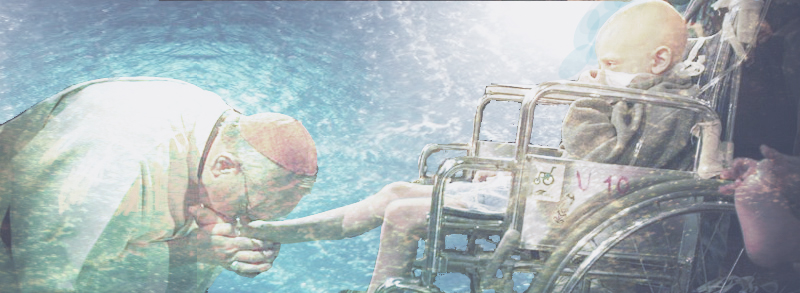What an exciting week to be Roman Catholic, or for that matter, anyone who was created in the image of God! Oh wait, that’s everyone! Something I ALWAYS have to remind myself of! Anyway, the Pope just hit the United States, and not just any Pope, but this unique man who has taken the name of St. Francis, a controversial figure in his own day!
The “Francis Affect” has been coined in trying to describe the impact of this man upon not just the Catholic community, but amongst people of all backgrounds and religious traditions. I remember our discussion this week at the Interfaith Leadership Council about Francis conducted by two atheists, a Muslim, and two Catholics (don’t worry, no jokes are coming!).
Dialogue as Evangelism
This movement toward dialogue is part of the message we get from the lifestyle of Pope Francis, not just for Catholic Christians or even other Christians, but for all people. As a campus minister who loves the diversity of the Christian church that Christ has imparted to us so many years ago, this week I can’t help but appreciate and enjoy my Catholic heritage, identity, and expression of the Christian faith. At St. Edward’s University, we even had the Papal bingo set up for the Papal watch party.
Others have been intrigued by this man as well: Protestants, Evangelicals, conservatives, progressives, liberals, seculars, and so many others. What is so attractive about this man?
I wish I could have such an affect in my own ministry! I came to St. Edward’s University to do ecumenical and interfaith ministry, drawing upon my experience as an evangelical and a Catholic, translating between the two for Christians on our campus. The interfaith work is much easier and less draining upon my faith life.
It is the 500th anniversary of the Reformation (a grace from God), but I long for a day when Christians stop trying to evangelize each other and get along better, strengthened by our cultural and theological nuances, and united in our common love and discipleship in Christ.
Francis’ Ministry of Presence
Francis’ appeal is not really related to his theology. Let’s face it, he’s made no dogmatic changes in the Catholic tradition, to the dismay of some, nor has he backed off on the application of faith to social concerns of the world, much to the dismay of others. Yet, people of all stripes seem at least intrigued by this man. He’s got a style.
I think it is the simple lifestyle he chooses to embrace, even in the midst of the pomp of the Vatican. He seems drawn to embrace those who others, like myself, might deem less embraceable: the poor, the dispossessed, the handicapped, the marginalized groups, and really just the person on the street. Since his early days as Pope, stories have been told of him washing the feet of prisoners, building showers at the Vatican for the homeless, and recently stopping the Papal motorcade to bless a young boy with cerebral palsy.
There doesn’t seem to be an evaluation of who the person is first. “Do they belong to a church?”, “do they need to be evangelized?”, “are they saved?”, “are they living for Christ?”, and so many other questions we often play in our head, are not what the Pope seems to be concerned with. We have been acculturated to look at people through our evangelizing tools.
Pope Francis seems most comfortable when he is going off-script, abandoning his “Christian script”, and speaking to the context of the person he is with at the time. It is a ministry of presence, focused on the need of the individual whose presence he is in, and not focused on what he wants from the person, even if it is his soul for Christ. It is a ministry of love, that allows the Holy Spirit to work through him, disabling the cultural and religious walls that we often put in the way of people from truly seeing God, incarnated to us through the son, Jesus Christ.
That is the love we must strive to show.
Conclusion
As we head into a very politicized and polarized time in this country, where politics and religion are often confused with each other, we will be challenged to focus on loving neighbors, those neighbors we like, AND those neighbors we don’t like. Both ARE neighbors. The second is tough and Matthew 5 doesn’t make it any easier!
Pope Francis is a man. No different than any other person. He experiences the same trials, joys, blessings and doubts that plague each of us as strive to walk with Christ. I bet Francis has read Matthew 5. Time to pull it out again! We have to do more than just read it!
Dr. James Puglisi is the Associate Director of Campus Ministry at St. Edward’s University in Austin, Texas. He received his Bachelor of Arts (1984) from Allegheny College, Meadville, PA in Anthropology of Religions. He holds a Master of Arts in Higher Education (1996) from Geneva College, Beaver Falls, PA, and a Master of Arts in Applied Theology (2002) from Wheeling Jesuit University. He was awarded a Doctor of Ministry from Catholic Theological Union (2008) in the area of Practical Theology. His doctoral writing was titled “Shalom: The Role of Truth Telling in Creating Communities of Racial Reconciliation within Institutions of Christian Higher Education.” He is actively involved in interfaith and ecumenical work at St. Edward’s University and in the larger Austin Community. In addition to his work in campus ministry, he teaches courses in the cultural foundations curriculum in the area of migration, culture, and diversity. He has presented at conferences on racial reconciliation and inter-religious dialogue. He is originally from Pittsburgh, PA.

